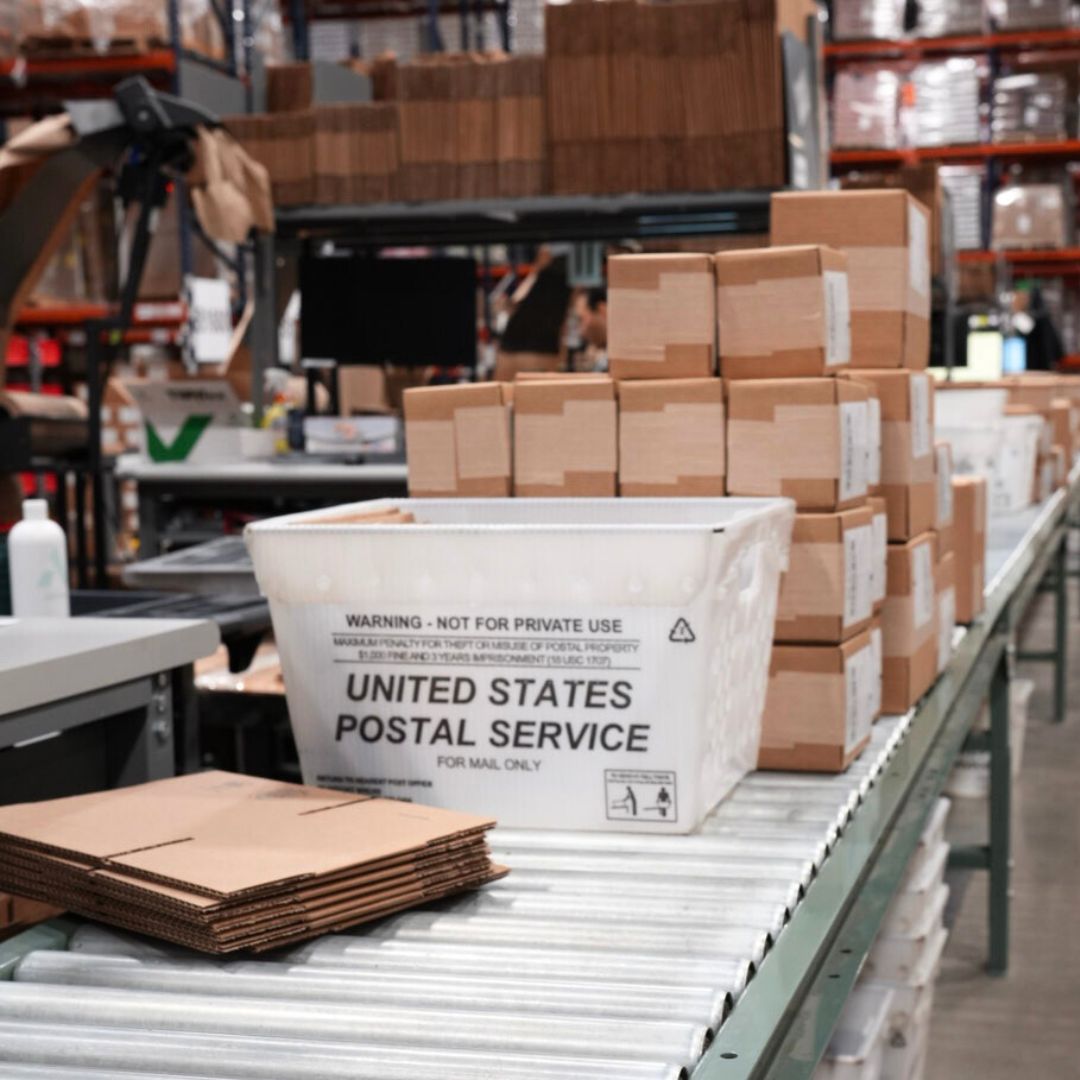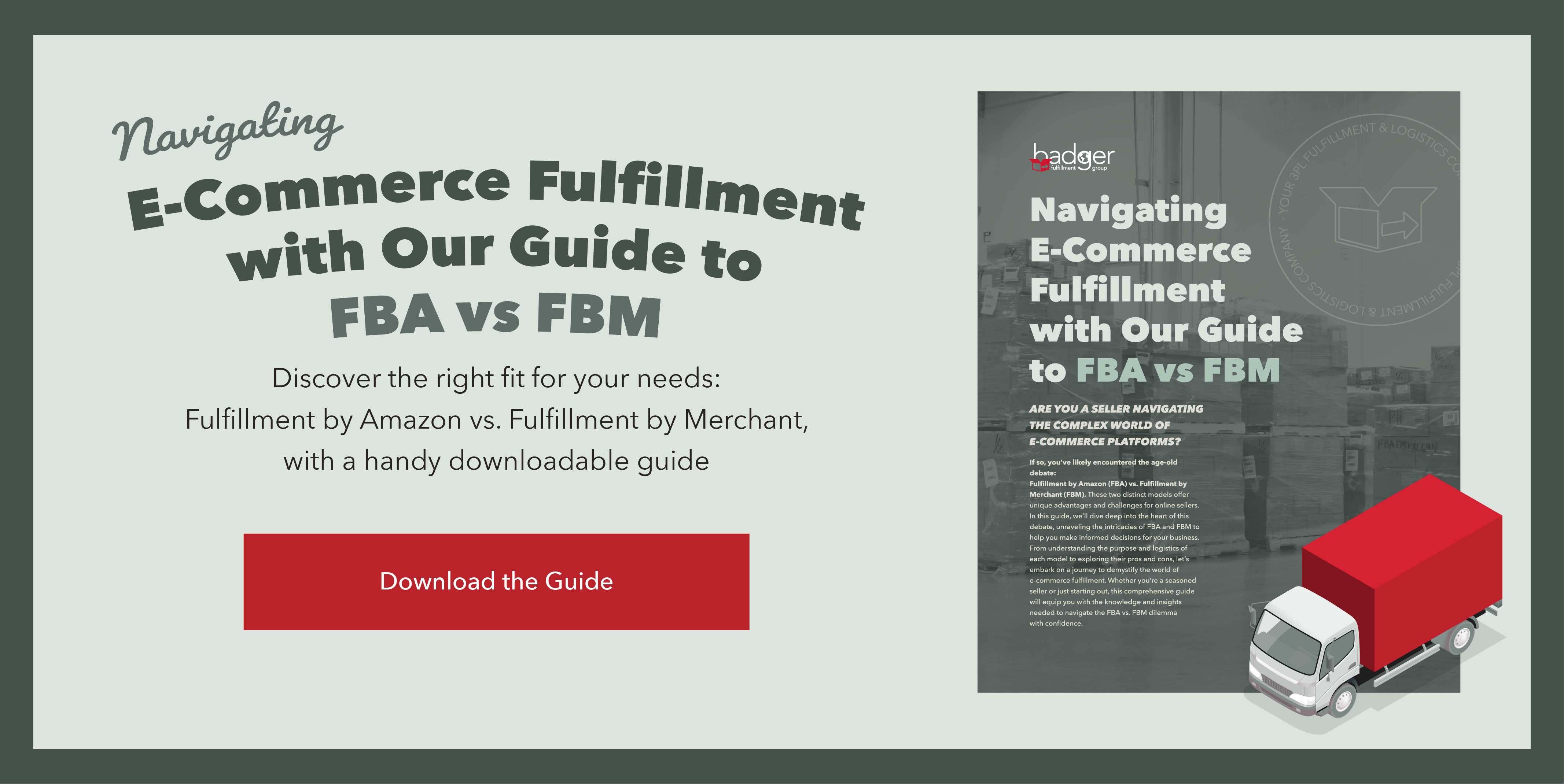Are you a seller navigating the complex world of e-commerce platforms? If so, you’ve likely encountered the age-old debate: Fulfillment by Amazon (FBA) vs. Fulfillment by Merchant (FBM). These two distinct models offer unique advantages and challenges for online sellers. In this guide, we’ll dive deep into the heart of this debate, unraveling the intricacies of FBA and FBM to help you make informed decisions for your business. From understanding the purpose and logistics of each model to exploring their pros and cons, let’s embark on a journey to demystify the world of e-commerce fulfillment. Whether you’re a seasoned seller or just starting out, this comprehensive guide will equip you with the knowledge and insights needed to navigate the FBA vs. FBM dilemma with confidence.
What is Fulfillment by Amazon (FBA)?
Fulfillment by Amazon (FBA) is a service offered by Amazon that allows sellers to store their products in Amazon’s fulfillment centers. When a customer places an order, Amazon picks, packs, and ships the item on behalf of the seller. Essentially, FBA takes the hassle out of order fulfillment, allowing sellers to leverage Amazon’s extensive network and infrastructure.
Advantages of FBA
- Prime Eligibility: Sellers gain access to Amazon’s Prime program, which means faster shipping times and enhanced customer satisfaction. Prime customers enjoy free two-day shipping on eligible products, increasing the likelihood that they will choose your listings over competitors’.
- Extensive Reach: With FBA, sellers can tap into Amazon’s vast customer base and global reach, opening new avenues for sales and growth. As of the first quarter of 2021, Amazon’s net sales increased by 44% year-over-year, highlighting the potential reach and customer base accessible through FBA.
- Hands-Off Fulfillment: FBA allows sellers to take a hands-off approach to fulfillment, freeing up valuable time and resources to focus on other aspects of their business, such as marketing and product development.
Disadvantages of FBA
- Higher Fees and Storage Costs: FBA can be expensive, with higher fees and storage costs compared to other fulfillment options. Sellers may incur additional charges if their inventory sits in Amazon’s warehouses for an extended period.
- Loss of Control: Sellers relinquish some control over the fulfillment process to Amazon, which may not align with every business model. This can be a disadvantage for those who prioritize control over their operations and customer service.
What is Fulfillment by Merchant (FBM)?
Fulfillment by Merchant (FBM) puts control back in the hands of sellers, requiring them to manage every aspect of the fulfillment process, from storage to shipping. With FBM, sellers handle their inventory directly, allowing for greater customization and cost-effectiveness. While FBM lacks the convenience and scalability of FBA, it offers flexibility and control over the fulfillment process. Sellers must be prepared for the hands-on involvement required with FBM, as they are responsible for every step of the process, from packaging to delivery.
Advantages of FBM
- Greater Control: Sellers have greater control over their inventory and fulfillment process, allowing for more customization in packaging and branding to align with their brand identity and customer experience goals.
- Lower Fulfillment Costs: FBM typically comes with lower fulfillment costs compared to FBA, making it an attractive option for sellers looking to optimize their margins.
Disadvantages of FBM
- Shipping Speed and Convenience: Without Prime eligibility, sellers may struggle to compete on shipping speed and convenience, especially in today’s fast-paced e-commerce landscape.
- Hands-On Involvement: FBM requires more hands-on involvement from sellers, as they are responsible for picking, packing, and shipping orders themselves. This can be time-consuming and resource-intensive, particularly for sellers with high order volumes.
Combining FBA and FBM
Many sellers find success by utilizing a combination of FBA and FBM, leveraging the strengths of each model to optimize their operations. For example, sellers may use FBA for fast-moving, high-demand products while fulfilling slower-moving items themselves through FBM. This hybrid approach allows sellers to take advantage of Amazon’s fulfillment network while maintaining control over certain aspects of their business.
Factors to Consider When Choosing Between FBA and FBM
- Inventory Size and Turnover Rate: Consider how quickly your products sell and the volume of inventory you manage.
- Budget and Cash Flow Considerations: Evaluate the costs associated with each fulfillment method and how they impact your cash flow.
- Branding and Customer Experience Priorities: Determine how important control over packaging and branding is to your business.
- Sales Volume and Seasonality: Consider your sales volume and whether you have seasonal fluctuations that could affect fulfillment needs.
- Long-Term Growth Strategy and Scalability: Think about your long-term business goals and which fulfillment method aligns best with your growth strategy.
By carefully weighing these factors, sellers can make an informed decision that aligns with their business goals and objectives.
The Case for FBM with a 3PL
While FBA offers convenience and access to Amazon’s extensive network, FBM can provide more control and cost-effectiveness, especially when partnered with a reputable third-party logistics (3PL) provider like Badger Fulfillment Group. A 3PL can handle the complexities of the fulfillment process, offering services such as inventory management, order processing, and shipping, allowing you to focus on growing your business. With the expertise of a 3PL, you can achieve the benefits of FBM—control, customization, and lower costs—without the hands-on involvement typically required.
Frequently Asked Questions About FBA and FMB
How does FBA impact my sales tax obligations?
When you use FBA, your products are stored in various fulfillment centers across different states, which can create a nexus in those states and potentially make you liable for sales tax in each of those states. It’s essential to understand the tax implications and ensure compliance with state tax laws.
Can I switch between FBA and FBM if my business needs change?
Yes, many sellers switch between FBA and FBM based on their business needs, product performance, and inventory levels. Amazon provides the flexibility to switch fulfillment methods, but it’s important to plan accordingly to avoid disruptions in your sales and customer experience.
How does FBM affect my ability to offer customer returns?
With FBM, you are responsible for managing returns, including processing refunds and handling customer inquiries. This allows you to set your own return policies, which can be tailored to your business needs, but it also means you need to have a robust return management process in place.
What are the shipping requirements for FBM sellers on Amazon?
FBM sellers must adhere to Amazon’s shipping requirements, which include meeting the expected ship and delivery times that Amazon customers expect. This may involve using specific carriers, providing tracking information, and maintaining high standards for packaging and shipping practices.
Are there any restrictions on the types of products I can sell through FBA or FBM?
Yes, both FBA and FBM have restrictions on certain types of products. For FBA, there are specific guidelines regarding product size, weight, and prohibited items. FBM also has restrictions, particularly related to hazardous materials and items that may require special handling or shipping.
How can I improve my seller metrics with FBM?
Improving seller metrics with FBM involves maintaining high standards for order accuracy, timely shipping, and excellent customer service. Providing prompt responses to customer inquiries, ensuring reliable packaging, and minimizing order defects are key factors that contribute to positive seller metrics.
What is the impact of FBA on my inventory management?
Using FBA requires careful inventory management to avoid long-term storage fees and ensure that your stock levels meet demand without incurring excess storage costs. You need to regularly monitor your inventory levels and sales performance to optimize stock replenishment.
How do I handle international shipping with FBM?
Handling international shipping with FBM involves understanding and complying with the shipping regulations of different countries, managing customs documentation, and selecting reliable carriers that offer international delivery services. You also need to consider the cost implications and potential delivery delays associated with international shipping.
Can I use FBA for some products and FBM for others simultaneously?
Yes, many sellers use a hybrid approach, leveraging FBA for fast-moving, high-demand products and FBM for slower-moving or niche items. This allows you to benefit from the strengths of both fulfillment methods while optimizing costs and control over your inventory.
What are the long-term implications of choosing FBA vs. FBM for my business growth?
Choosing between FBA and FBM can impact your long-term business growth in terms of scalability, cost structure, and customer experience. FBA offers scalability and access to Amazon’s customer base but comes with higher costs and less control. FBM provides more control and potentially lower costs but requires more hands-on management and can limit scalability. Assessing your business goals and resources is crucial to making the right choice for sustainable growth.
Fulfillment by Amazon (FBA) and Fulfillment by Merchant (FBM) offer unique advantages and considerations for businesses in the e-commerce realm. FBA provides convenience and access to Amazon’s extensive network, while FBM offers control and customization over the fulfillment process. As businesses navigate this decision, it’s crucial to consider the key differences and similarities between the two methods. While FBA may suit businesses seeking streamlined operations and broader market reach, FBM can cater to those prioritizing control and cost-effectiveness. Ultimately, the choice between FBA and FBM depends on the specific needs, goals, and resources of each business. By carefully weighing these factors and considering the benefits of partnering with a 3PL, businesses can make informed decisions that align with their long-term growth strategies. Contact Badger Fulfillment Group for more information about the best solution for your business!



